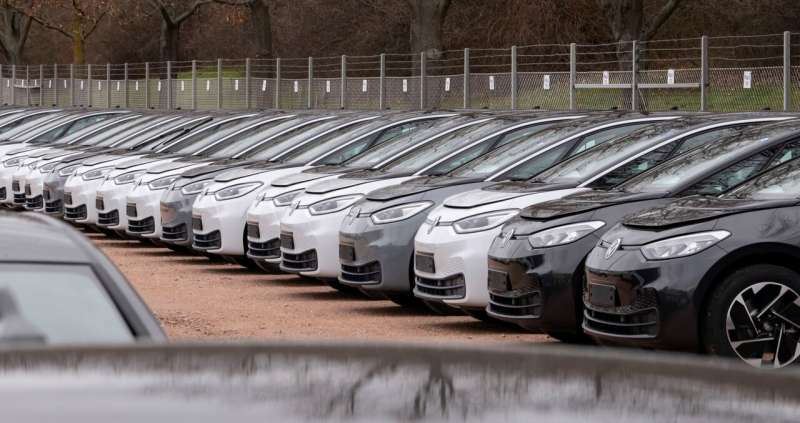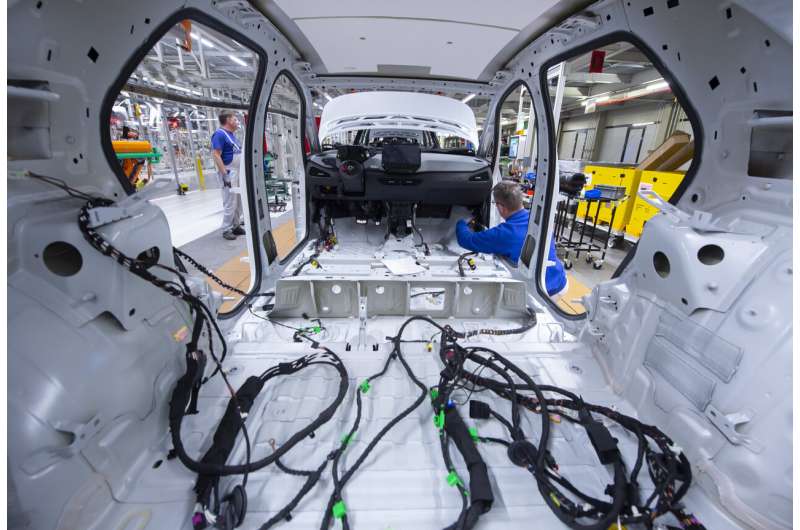Volkswagen triples electric car sales ahead of climate rules

Europe's push into electric cars is gathering speed—despite the pandemic.
Automaker Volkswagen tripled sales of battery-only cars in 2020 as its new electric compact ID.3 came on the market ahead of tough new European Union limits on auto emissions. And Germany, long a laggard in adopting electric vehicles, saw more people buy electrics in December than opted for previously dominant diesel vehicles.
Those are early signs of what will likely be an upcoming year of increasing market share for electric cars as EU regulations drive their adoption, despite the recession caused by the coronavirus pandemic that has caused the overall car market to shrink.
Volkswagen said Tuesday its namesake brand sold 134,000 battery-powered cars last year, up from 45,000 in 2019.
Including hybrids, which combine an internal combustion engine and an electric motor, sales of electrified cars reached 212,000, up from 82,000 in 2019.
Volkswagen's ID.4 sport-utility vehicle made on the same mechanical base.
Demand has been held back by lack of places to charge electric cars, including for people who live in apartment buildings and can't install a charging box at home. Germany's auto association, the VDA, said there's only one publicly available charging station for every 17 electric cars.

California-based Tesla has been a major factor in the electric upswing with its Model 3 and its proprietary network of fast-charging stations.
The government in China, the world's largest auto market, is also pressing carmakers to lower emissions.
The uptake of electric vehicles has been slower in the United States, where regulatory pressure has been weaker and where gasoline costs as little as $2 per gallon, depending on the region. That compares to 1.30 euros per liter of gas, or $6 per gallon in Germany, much of which is taxes.
© 2021 The Associated Press. All rights reserved. This material may not be published, broadcast, rewritten or redistributed without permission.



















